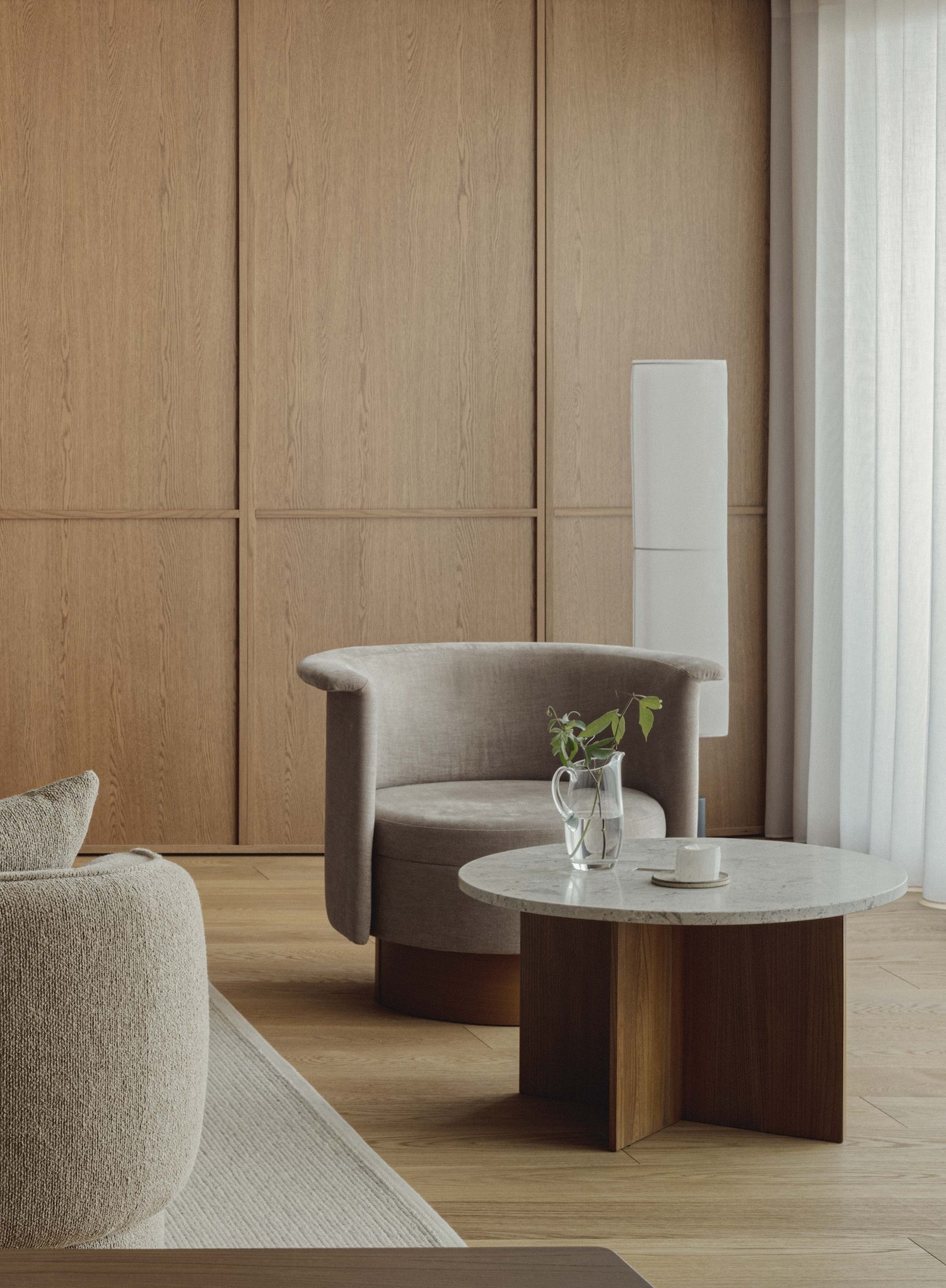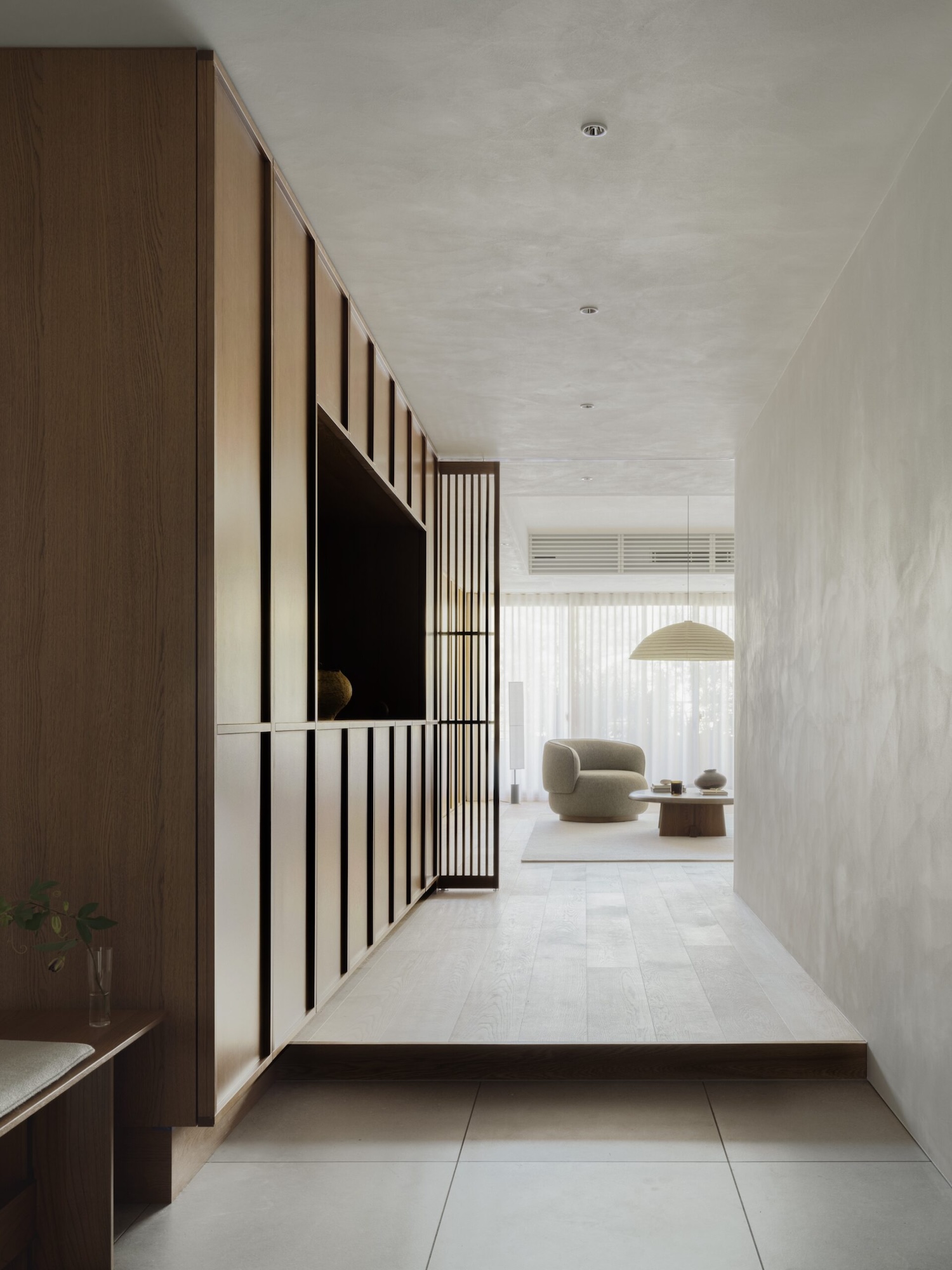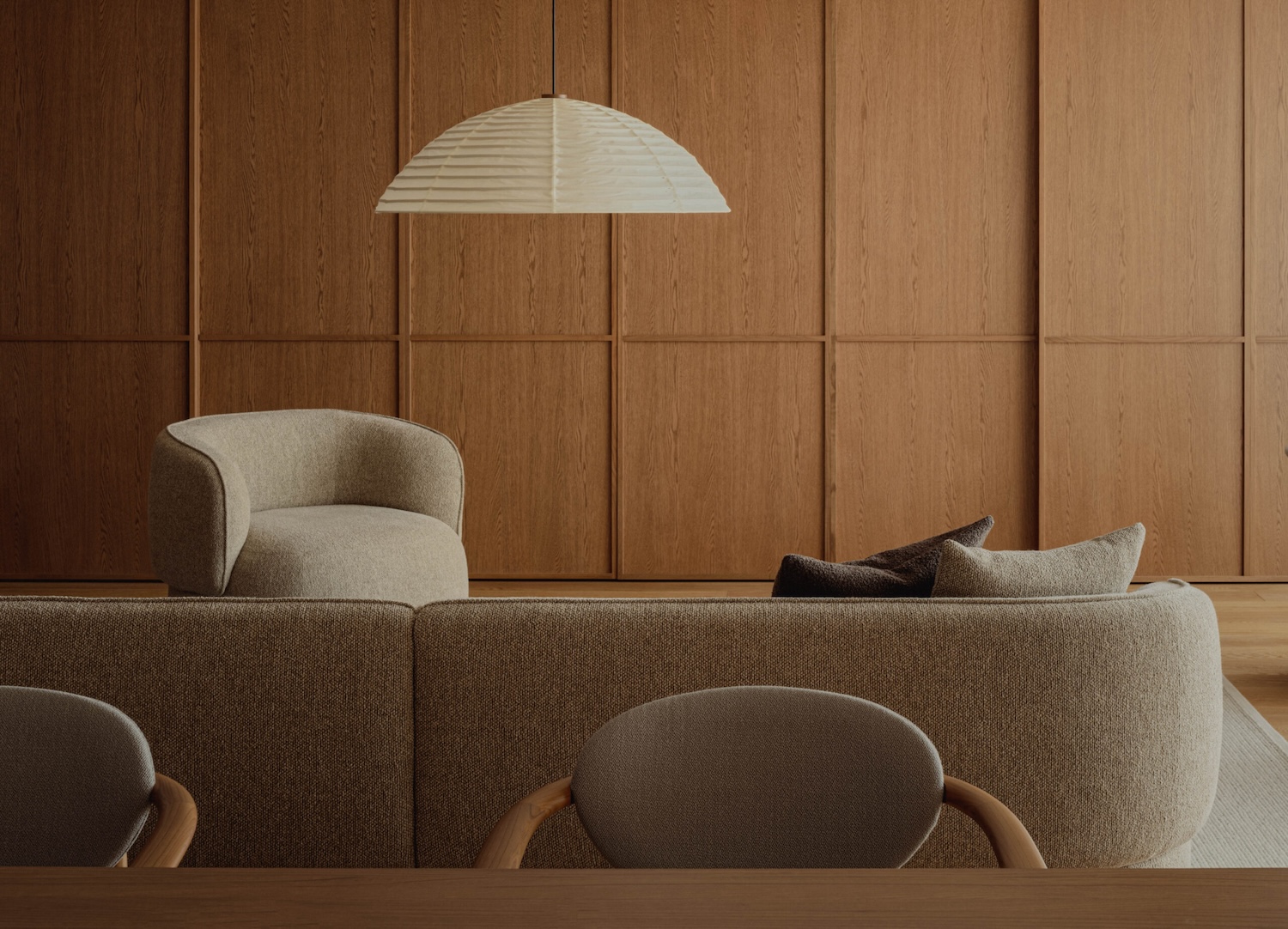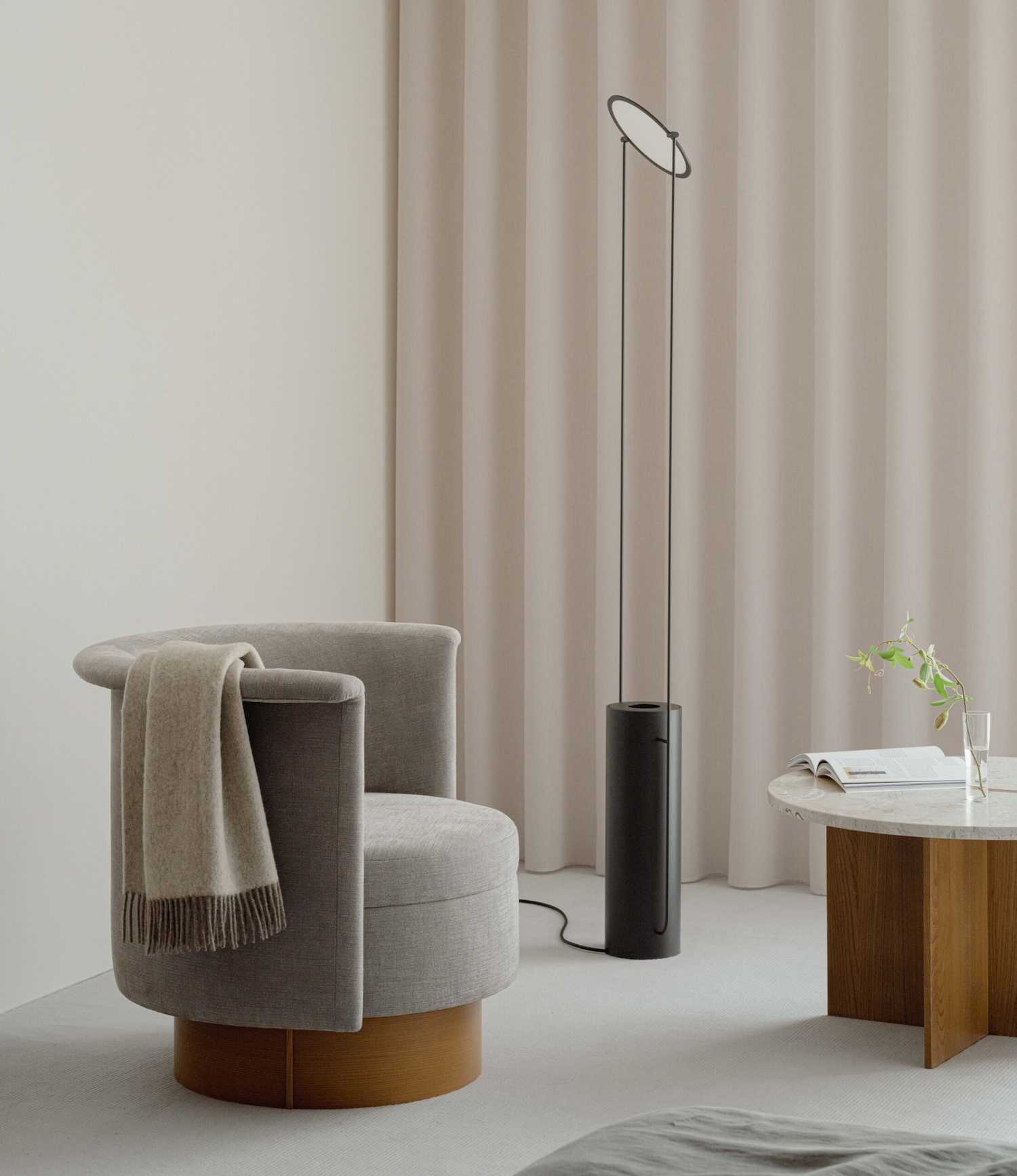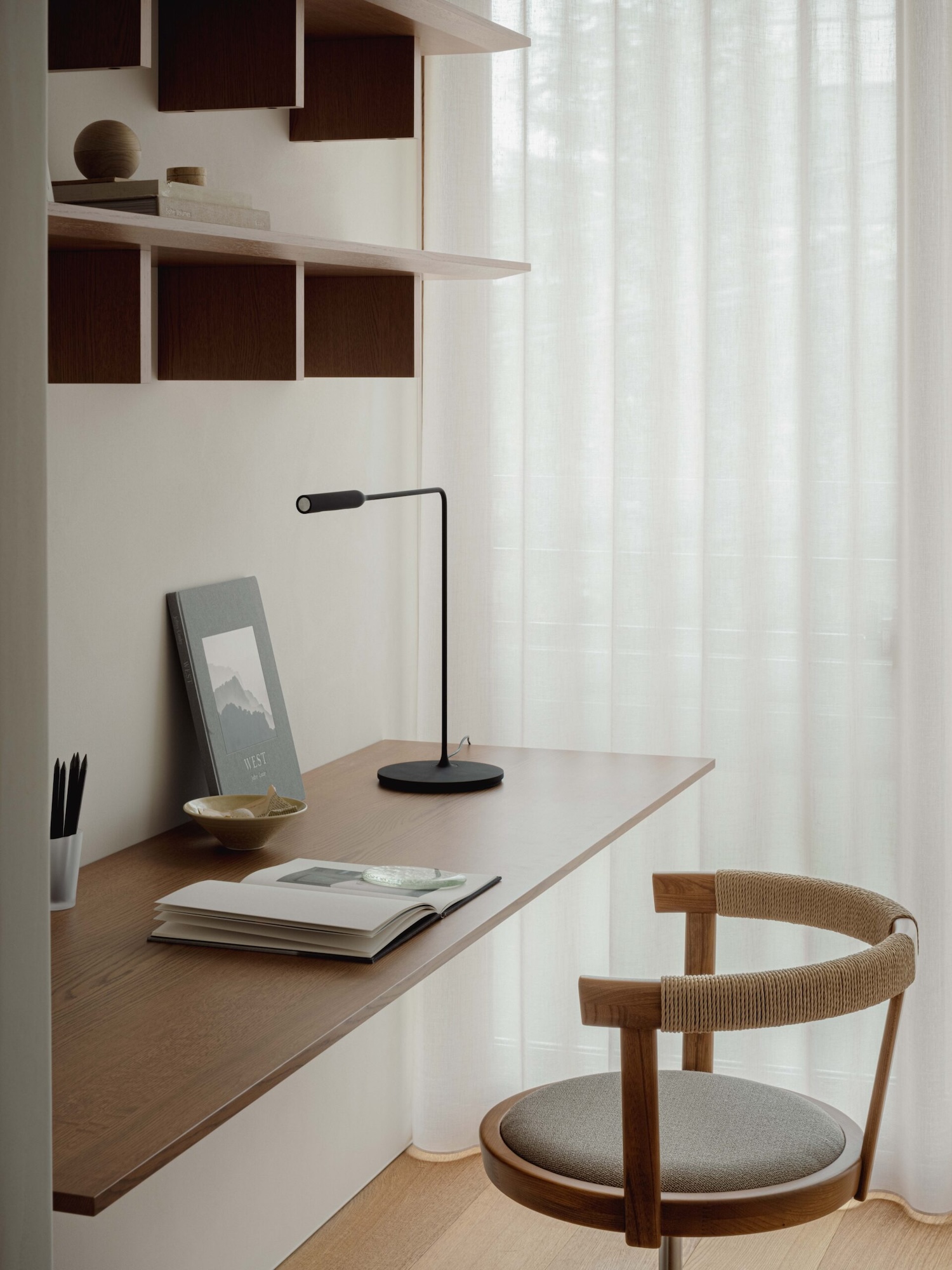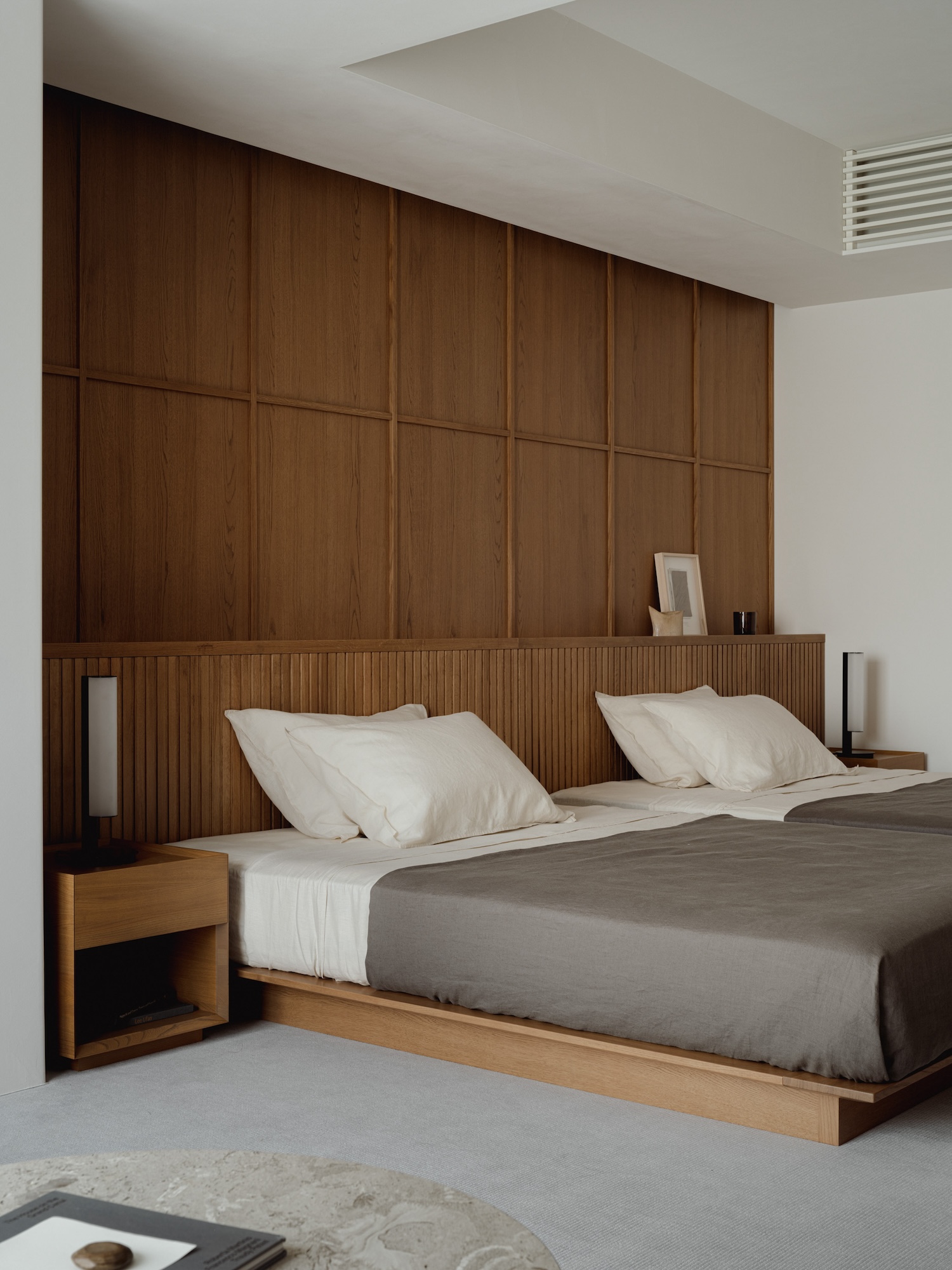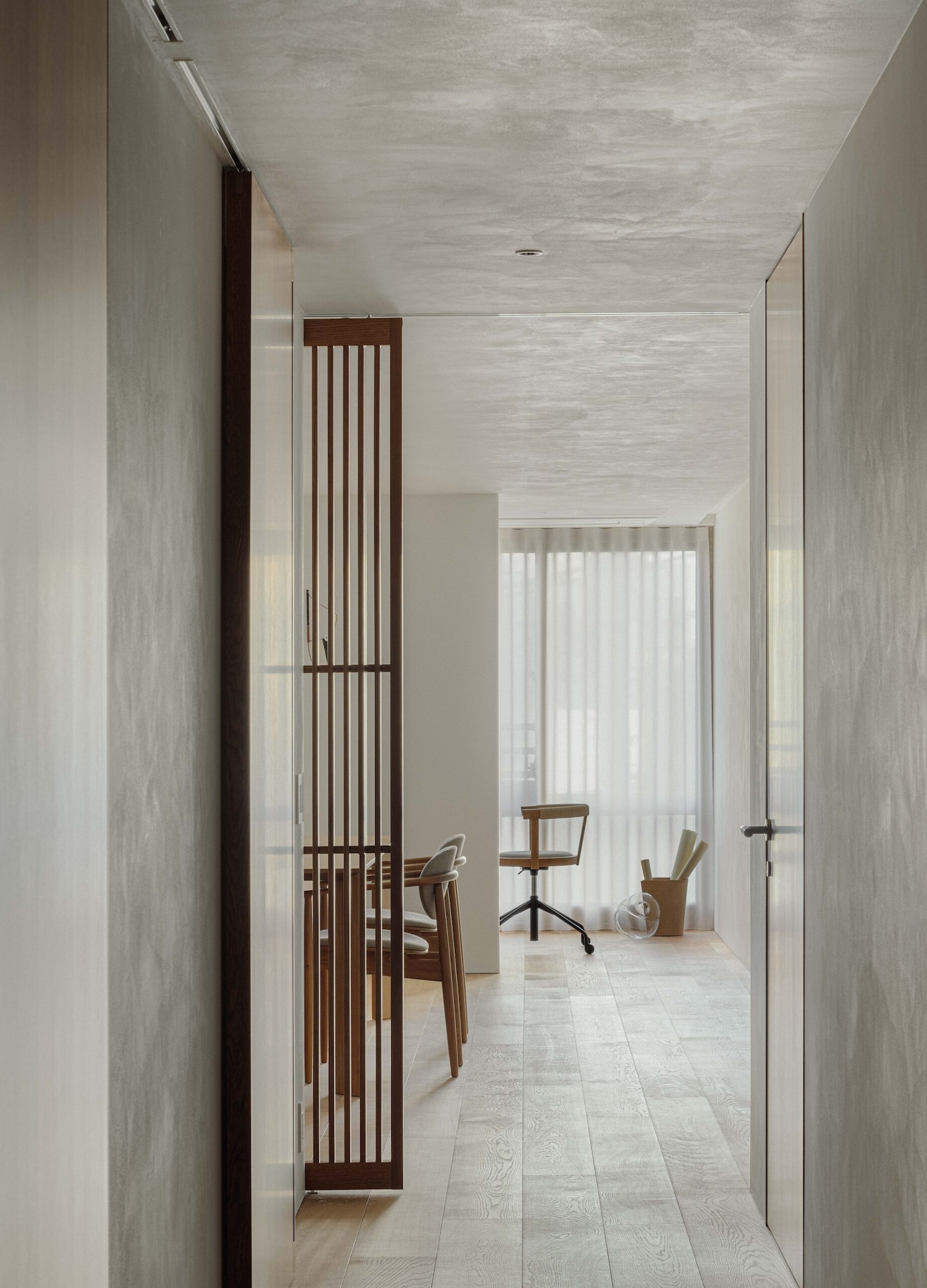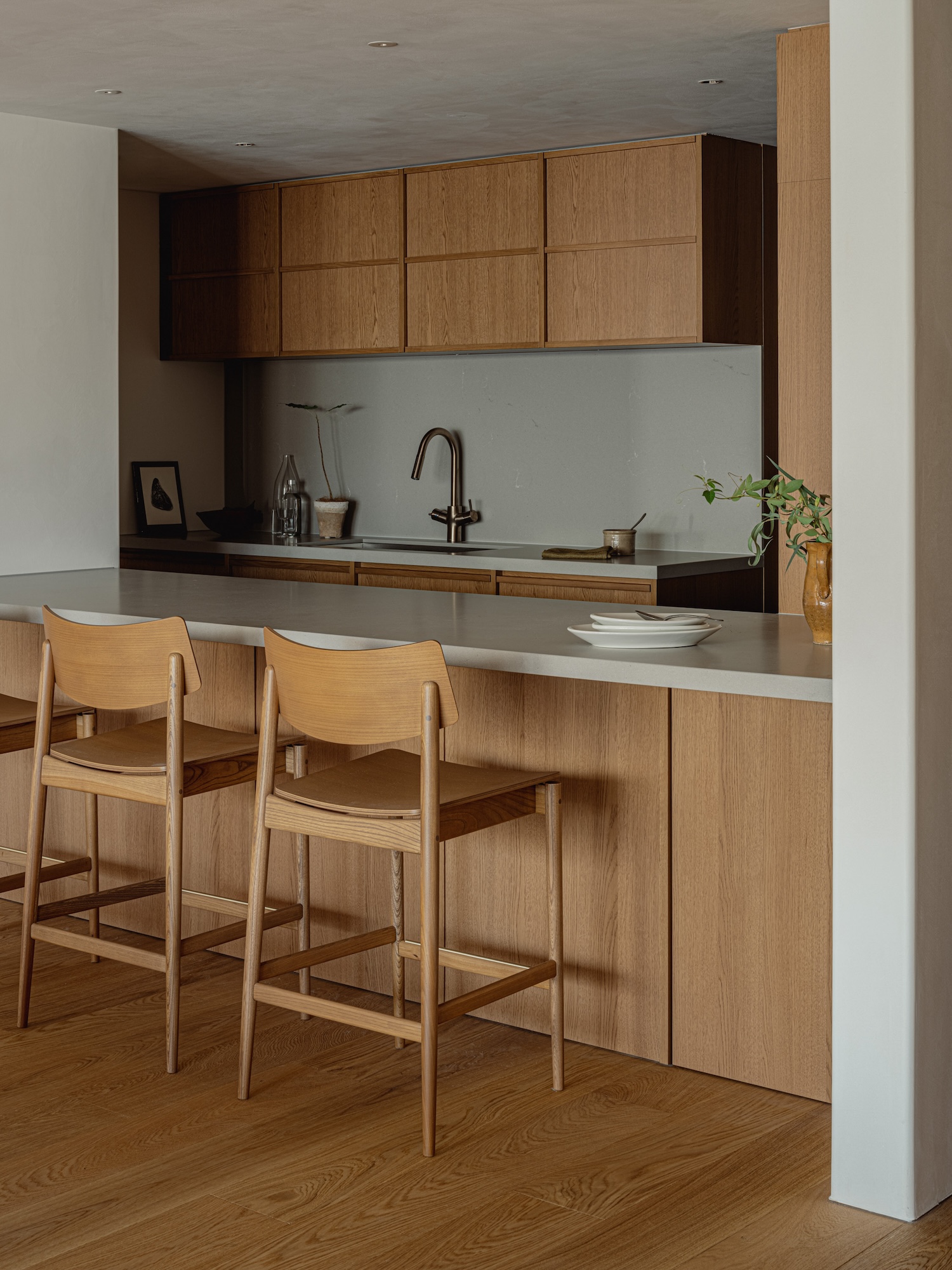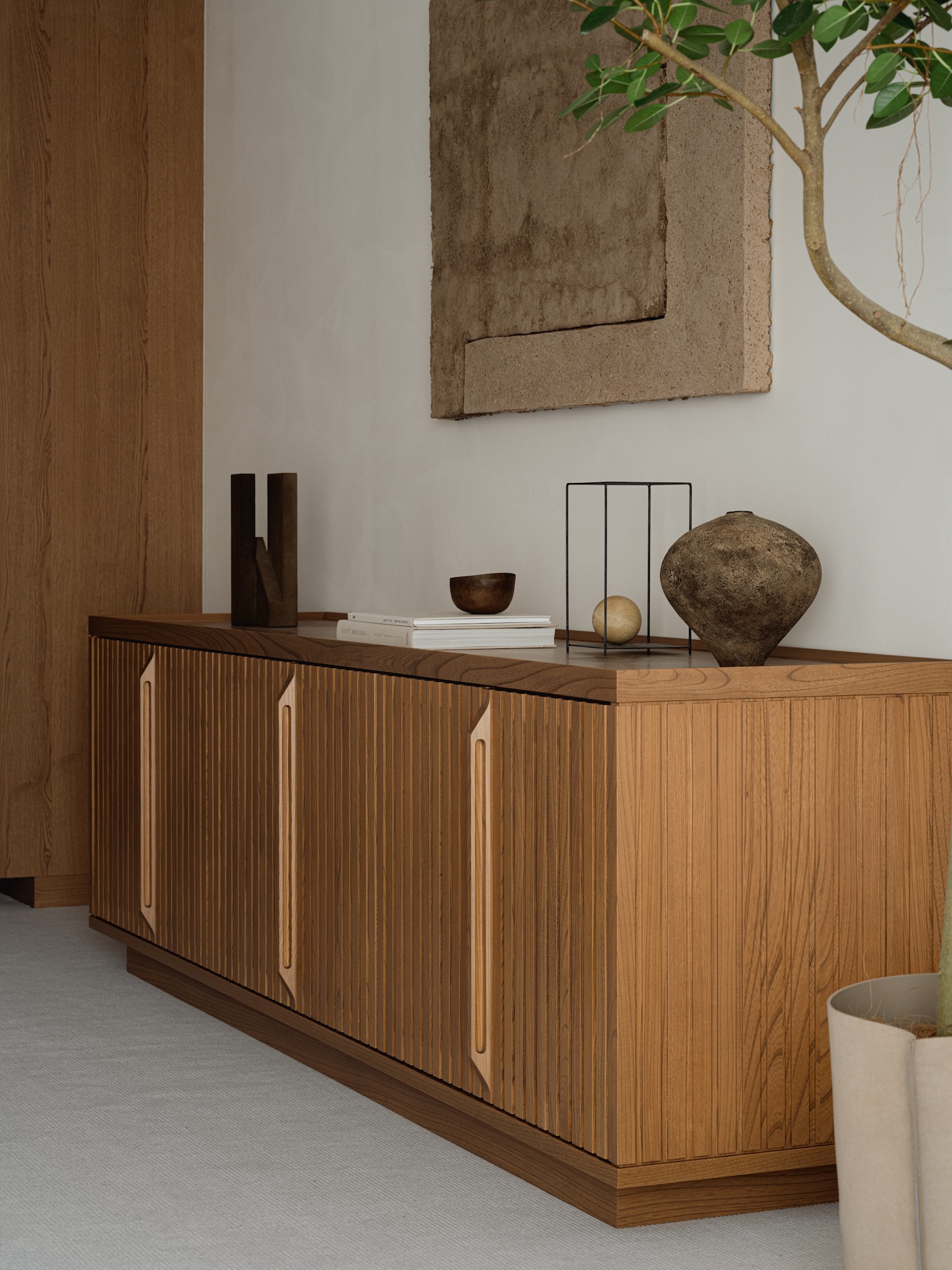Azabu Hills Residence is a minimalist space located in Tokyo, Japan, designed by Keiji Ashizawa featuring Karimoku Case. The project, perched atop a hill, benefits from a serene environment rich in greenery and favorable natural conditions. Despite its northern orientation, the property enjoys ample views and is suffused with a soft, consistent light throughout the day, enhancing the living experience. The renovation, a collaborative effort between Keiji Ashizawa Design and Norm Architects, introduced the tenth collection for Karimoku Case. This partnership focused on reimagining the interior with a series of custom furniture pieces and design elements that harmonize with the surroundings.
A bright color palette was chosen to infuse the space with a sense of calm and serenity, mindful of the condominium’s setting and its residents’ profile. A notable aspect of the design was the strategic use of zelkova wood, a material with a rich heritage in Japanese architecture and furniture, yet one whose demand has waned in recent times. Karimoku Furniture’s initiative to repurpose zelkova for contemporary use resonated with the project’s ethos, leading to its selection for the interior design. This choice was inspired by the wood’s warm reddish tones and unique grain, which align well with the project’s aesthetic goals. Furniture pieces crafted for this space include a sofa, chair, and coffee table, each designed to complement the interior’s overall theme.
The spatial design emphasizes connectivity while allowing for separation through lattice doors, enhancing ventilation and natural light distribution across the elongated north-to-south layout. The arrangement of the living and dining areas, along with the strategic placement of a workspace and counter table, facilitates a versatile living environment. Art and stylistic elements further enrich the space, with selections made to resonate with the interior’s materiality and warmth. In response to the natural lighting conditions, careful consideration was given to the finishes and colors of walls and ceilings. The use of zelkova wood, combined with lighter material tones and traditional Japanese paper lighting, contributes to the space’s eloquent expression. The craftsmanship of Karimoku Furniture extends beyond the furniture to the interior woodwork, enhancing the overall quality of the space.



